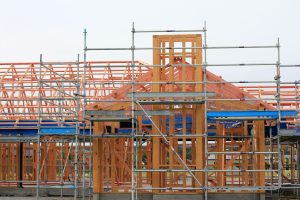
Written By: Lee Warren, Prospect Inspectors and Member of CCAR's Affiliate Committee
Most buyers will employ a home inspector on the purchase of a preowned home, typically while in the option period. However, many consumers do not get an inspection on the purchase of a new construction home. There are many reasons for this. Some buyers believe that with it being a brand new home, that there will not be any problems with it. Many builders will tell prospective buyers that it is a waste of money to pay for a home inspection.
Builders may contend that they go through their own inspections, they also hire third-party inspectors, and then there are the city inspections. On top of that, there is a one-year warranty on the home that will cover any defects in the home for the first year. The one thing that all of those inspections have in common is that none of them look out for the best interest of the buyer. On top of this, there are a substantial number of deficiencies that can be discovered when a licensed home inspector performs an inspection on new construction. The Standards of Practice set forth the minimum set of required items to inspect and test for during the course of an inspection, as set forth by the Texas Real Estate Commission. None of the builder-mentioned inspections cover the vast majority of these standards.
There are also some builders that will tell buyers that they welcome a third-party inspection, yet when it comes time for that inspection to happen, they put in a number of restrictions that may end up preventing that very inspection. Restrictions that include making an inspector sign an agreement that limits the scope of their inspection below the required standards that are set forth by the Texas Real Estate Commission, requiring an excessive amount of insurance, naming the builder as an additional insured to the insurance, and waiving the inspector’s right to seek remedy against the builder should the inspector get hurt or die as a direct result of the builder’s gross negligence. Many inspectors will not sign these agreements, as they are, often times, clearly intended to prevent the third-party inspection of the home and put the inspector in a liable position by doing so.
The purchase of a home is often the largest investment that a buyer will make in their lives. Just because it’s new does not mean that it is done correctly. When helping your client shop around for new construction, pay special attention to the builders that they may end up choosing. Have a conversation with the builder on their position about third-party inspections. By determining the builder’s position up front, you may help your client avoid an unforeseen roadblock to getting their new home inspected when the time comes. By the time the items could be caught during the warranty period, how much headache will your client endure to having it corrected. Furthermore, there is no guarantee that the deficiency will reveal itself prior to the warranty expiring. At that point, your client may be on the hook for a defect that could have been caught by a licensed inspector at the beginning of the process.
